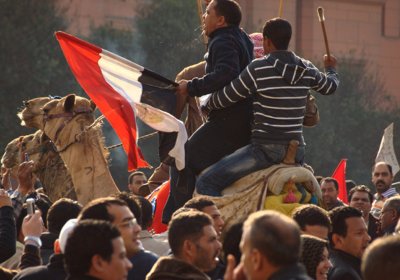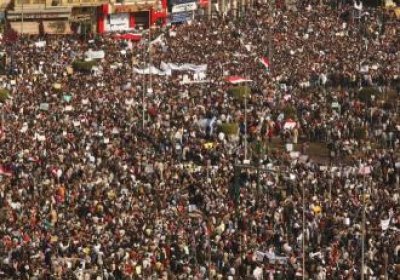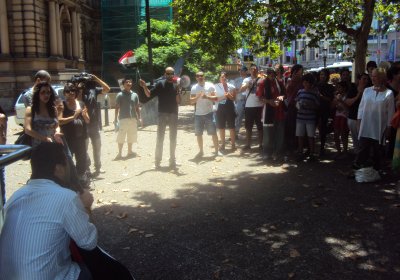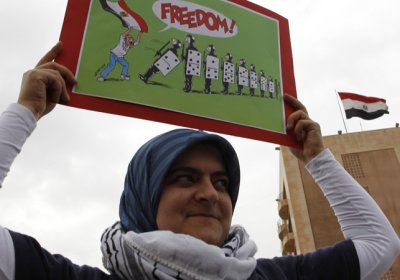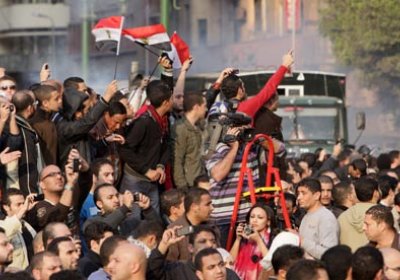Egypt
After as many as 2 million people took over Tahrir Square and the streets of Cairo, with millions more across Egypt, on February 1 to demand on end to the US-backed dictatorship of Hosni Mubarak, the regime responded with a violent assault on protesters continuing to occupy the square.
International Socialist Review editor Ahmed Shawki reports from Cairo on the latest mass protests against Hosni Mubarak--and what the future holds for Egypt's uprising.
"As we speak, Egypt is on fire," Arab community activist Omar Mostafa told about 50 people who attended a snap protest rally in support of the recent democracy protests in Egypt at Town Hall Square on January 29.
Ongoing mass demonstrations, strikes and riots have rocked Egypt since January 25. Tens of thousands of people took to the streets in national protests on January 25 to demand an end to the United States-backed dictatorship of Hosni Mubarak.
Tens of thousands of people took to the streets of Egypt on January 25 to demonstrate their opposition to the regime of President Hosni Mubarak. Inspired by the revolution in nearby Tunisia that has overthrown the Ben Ali dictatorship, activists called demonstrations labled a "Day of Wrath" across Egypt.
- Previous page
- Page 8

